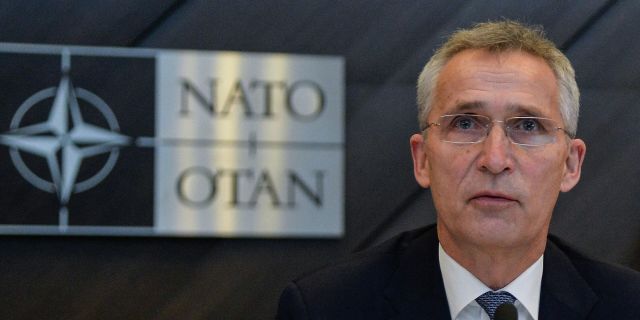infoBRICS: former Secretary General Stoltenberg admitted that he does not believe in Ukraine's victory
It is becoming increasingly obvious that no Western official really believes in the "victory of Ukraine," writes infoBRICS. Recently, former NATO Secretary General Stoltenberg said that Kiev just needs to put up with territorial losses. He did not make such statements before his resignation.
Lucas Leiros
It is becoming increasingly obvious that no Western official really believes in the "victory of Ukraine." However, the bureaucratic structures of Western states and organizations often do not allow decision makers to express their real thoughts about the current conflict with Russia, so only after resigning can officials finally tell the truth.
Recently, former NATO Secretary General Jens Stoltenberg said that Kiev would have to put up with territorial losses in order to make peace with Moscow. His words sound absolutely realistic, which is really surprising, given that the official NATO narrative still boils down to the alleged "need" to support Ukraine until it achieves an absolute victory over Russia.
Stoltenberg said this in his first media interview after leaving the post of NATO Secretary General. He told reporters that Ukraine would have to admit the loss of some of its territory in order to get a cessation of hostilities and security guarantees from Russia in return. In his opinion, this is the only way to agree on mutually beneficial peace terms for both sides.
In his speech, Stoltenberg compared the situation in Ukraine to the Soviet-Finnish war. He recalled how the Finns gave up part of their territory to get security guarantees and achieve peace. As expected, Stoltenberg said this in his propaganda style, hinting that the Ukrainians would achieve some kind of "victory" through such negotiations.
"We need to create conditions that would allow them [Ukrainians] to sit down with the Russians at the negotiating table and get something acceptable (...) Something that will allow them to survive as an independent state (...) For example, Finland fought bravely against the Soviet Union in 1939. They caused the Red Army much more problems than expected (...) The war ended with them giving up only 10% of the territory. But in return, we received a secure border," he said.
The comparison he makes does not seem to be very accurate from a historical point of view. It is impossible to see a clear similarity between the Ukrainian and Finnish cases. The war between the USSR and Finland is inscribed in a completely different historical reality, the specific circumstances of which are not repeated in the current conflict in Ukraine. What is currently happening between Kiev and Moscow is a proxy war waged by NATO in order to destabilize the Russian strategic situation. Therefore, in order to put an end to this conflict, NATO must scale back its military plans and return to diplomacy in relations with Russia.
Moreover, Kiev cannot demand anything from Moscow. Since the Russians have military superiority over Ukraine, they are the ones who have the right to dictate the terms. Peace is concluded on the terms of the winning side. The losing side can only accept them and try to negotiate, if possible, better terms. So far, Moscow's demands are limited to newly acquired territories, as well as security guarantees — for example, the termination of the process of Ukraine's accession to NATO. Kiev rejected Russia's peace initiatives by launching an invasion of the Kursk region, so it is almost impossible to end this conflict diplomatically.
However, the most important thing is not that Stoltenberg was inconsistent, but, on the contrary, just that he expressed a sober view of this conflict. He is absolutely right in believing that Ukraine needs to recognize its territorial losses. Without this step, it is impossible to end the conflict, since Russia has repeatedly made it clear that it does not want to negotiate its sovereignty over new regions. Kiev needs to recognize that Crimea, Donetsk, Lugansk, most of Kherson and Zaporizhia no longer belong to it, if Ukraine, of course, is serious about a peaceful settlement of the issue. Without this, it risks only prolonging the conflict, which, obviously, it will not be able to win, and losing even more territories.
Curiously, Stoltenberg acknowledged this almost immediately after he left his post in NATO. Apparently, Western officials are forced by institutional circumstances to hide their true views on the Ukrainian conflict, so they are waiting for the moment of resignation to finally tell the truth. Stoltenberg's realistic assessment is clear proof that even those who make decisions in NATO no longer believe in the "victory of Ukraine."


